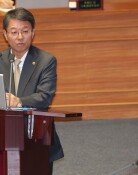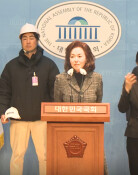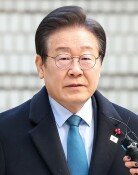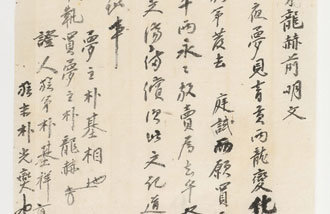A society asking Supreme Court to confirm common sense
A society asking Supreme Court to confirm common sense
Posted January. 09, 2025 07:53,
Updated January. 09, 2025 07:53
“We must respect the (warrant) trial, which was conducted by the law,” said Cheon Dae -yeop, head of the National Court Administration, commenting on the controversy over the detention warrant for President Yoon Suk Yeol. “All disputes should be resolved within the framework of the rule of law,” Cheon said in response to a question about the presidential security service's use of physical force to block the execution of the detention warrant. This is apparently his oblique criticism of Yoon's and the presidential security service's practice of challenging the legality of detention warrants and refusing to accept them.
It is common sense that the validity of a warrant issued after a warrant review, which is a type of trial, should be recognized and followed. If you are dissatisfied with the outcome of a trial, you can appeal the decision and have it reviewed by the court according to the procedures set forth in the law. The fact that such a question has to be asked to the chief court administrator, who is also a Supreme Court justice, and related principles that everyone knows should be thus confirmed is a sign that the rule of law in Korean society is on shaky ground.
This was caused by none other than President Yoon's side, which denied the court's judgment by using irrational logic. Even when the court issued the detention warrant requested by the Corruption Investigation Office for High-ranking Officials, President Yoon's defense lawyers argued that it was unacceptable because “the warrant was requested by an agency that has no authority to investigate.” Even after the appeal was rejected, they argued “It does not mean that the warrant is legitimate.” Based on Yoon's objections, the presidential security service blocked the arrest, claiming that there was a “controversy of expediency and illegality.” Such an act makes resolving the issue through the legal process impossible.
Furthermore, President Yoon's side said Wednesday, “The president will attend the trial if they (indict) me or request an advance (arrest) warrant.” The suspect must be interrogated before requesting an arrest warrant or charges filed. How can authorities investigate Yoon, who has ignored repeated requests to appear before the Corruption Investigation Office and refused to be detained? It is also out of the question to interrogate Yoon, who is being accused of being an insurgency leader, just in written documents.
Yoon's defense has also repeatedly argued that the Corruption Investigation Office’s request for a warrant from the Seoul Western District Court is a jurisdictional violation, but that is an issue for the court to decide. The court dismissed Yoon’s appeal against the detention warrant, saying there was no jurisdictional issue. The more chaotic and unstable a society is, the fairer and more stable it is to play by the rule of law. Any behavior that undermines this principle should not be tolerated.







